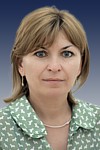In the spring of 2020, when we were locked in our homes, afraid of what tomorrow would bring and when the pandemic period would ease, dr. Zsuzsanna Füzesi, professor and head of division at the Department of Behavioural Sciences, came up with a special idea: that we should write personal, positive, inspiring stories so that not only sad news are present in our lives. Stories about what helps us endure hardships, how people find a reason to smile in everyday life, or what techniques they use to fight stress and lockdown. At first, there were only a few messages, short writings, and then the initiative gained such popularity that one could hardly keep up with reading. Community creation was born, which can now be found in the form of an issue and viewed in PDF on our School's website. Dr. Zsuzsanna Füzesi's idea was fulfilled by the staff, teachers, and students of the School, and Mária Polecsák, the administrative colleague of the Department of Behavioural Sciences edited it - I had a conversation with the two of them.
Written by Rita Schweier
- Those who know Professor Zsuzsanna Füzesi know that she is a cheerful, very positive personality, so it was not surprising that she came up with such an idea.
 Zs.F.: - The idea is not my own this time though. Dr. Miklós Nyitrai, Dean of the Medical School mentioned that during the forced lockdown it would be good to read not only instructions, rules, and restrictive news in connection with the coronavirus, but also something that brightens up our day and belongs to normal existence. That was when I started thinking about implementation, and this is what became of it. It was important to not only wait for “redemption” “from above”, but that also we, the staff and students, organize horizontally, help each other, thus increasing the sense of community, solidarity, the feeling of “we consciousness”.
Zs.F.: - The idea is not my own this time though. Dr. Miklós Nyitrai, Dean of the Medical School mentioned that during the forced lockdown it would be good to read not only instructions, rules, and restrictive news in connection with the coronavirus, but also something that brightens up our day and belongs to normal existence. That was when I started thinking about implementation, and this is what became of it. It was important to not only wait for “redemption” “from above”, but that also we, the staff and students, organize horizontally, help each other, thus increasing the sense of community, solidarity, the feeling of “we consciousness”.
These stories and writings not only helped us hold on and endure, but also smile and learn, they even had and may still have today an important role in finding solutions. Some are reassured by the same story or helpful writing, while others are inspired by it.
The pandemic has made us realize that life is not on a single track towards a “bright future”. There is no existence free of problems or difficulties, but there is no such thing that only problems and difficulties exist either.
- You have been the driving force behind this project all along and have built a solid writing base among teachers, students, and staff alike. After the first two weeks, the stories were pouring in, people were very enthusiastic. How did you achieve this?
Zs.F.: - I have not thought much about this so far because it was natural for me that I asked, and people sent the stories. If the colleagues trust each other, it works. This is my personal response. The professional one as a behavioural scientist is that one of the beneficial effects of stress can be felt in connecting with and helping others. This is good for us as well; it reduces our own stress levels. For example, by telling stories or sharing helpful writings when we cannot hug each other.
- Why did you find it important to publish the stories in a volume?
Zs.F.: - Time does not necessarily favour memories stored in our minds. New information, experience, happenings erase a lot of memories. Those that remain without being written down are told, but they may no longer be the same as the original ones because we have filtered them and flowed them through ourselves so many times. We are attuned to stories and they have an amazing impact on us, as neurological research clearly proves it.
- It is impossible to provide the volume with a genre definition because there are many stories, messages, short writings, helping, motivating writings in it in different styles and moods, but it may not even be necessary.
Zs.F.: - It was not made to be categorized into one genre. It is not a diary, not a collection of documents, it is far from literature as well, although some stories are close to it. In addition to personal stories, it contains motivational writings and even self-help exercises.
For me, it is special, unique because it was written mostly by laymen with the intention of helping laymen with joy, often with passion. It exists in my mind as a community creation, the fact that it is about our community gives it its uniqueness. It is also special because the writings contained in it were published in three languages at the same time.
In addition to the many writer colleagues, teachers and students, Mária Polecsák also took an integral part in the community creation, she edited the writings into a volume. She undertook the task enthusiastically, looking for the right photos, colours, so that these lovely stories would get the “appearance” that matched them.
- It was obvious from the very first moment that you started editing with great interest and passion. Why did you like this work so much?
 M.P.: - At first, I just read the stories like everyone else. Then, in terms of editing and layout, they became close to my heart, I took a liking for them. I am not a professional editor, I am a layman like most of the authors. The colours, the illustration, the visual material is therefore a very subjective selection but I tried to make the best of it.
M.P.: - At first, I just read the stories like everyone else. Then, in terms of editing and layout, they became close to my heart, I took a liking for them. I am not a professional editor, I am a layman like most of the authors. The colours, the illustration, the visual material is therefore a very subjective selection but I tried to make the best of it.
- Several people helped your work, what was it like working in this team?
M.P.: - I like working in a team, especially with people who trust me and I get feedback from them. In our case, at the Department of Behavioural Sciences, this is how it works, in addition to the teachers and researchers, we can also contribute to the solution of a task based on our own knowledge as respected colleagues. To prepare the volumes, in addition to Professor Zsuzsanna Füzesi, I received a lot of support from dr. Boróka Gács who wrote most of the psychological writings, Zsuzsanna Varga, the head of the Dean's Office, and also from dr. Tímea Németh, colleague of the Department of Languages for Biomedical Purposes and Communication.
- Have you ever had a similar task?
M.P.: - Yes, luckily I receive many beautiful tasks. I mentioned that I am neither a professional graphic designer nor a professional editor, I do not have a program for it either, but I have already had the opportunity to create websites and other publications. I am a little insecure but very excited and enthusiastic about challenges like this. And we always share the joy of success.
These little stories and messages became close not only to my two interviewees, but to me as well since I was the one who stylized them, shaped them in terms of content every day, and even contributed to their creation. I could not wait for a new piece of writing to arrive because I drew energy from it to compile other “stories,” or rather news, that were by no means so colourful and cheerful. I got to know many people, young and old, who were united in that it is only possible to move forward by working together, by faith, by understanding, by strengthening the “we consciousness” and in creating something unique together.
We would like to thank all participants for their contribution and cooperation!

